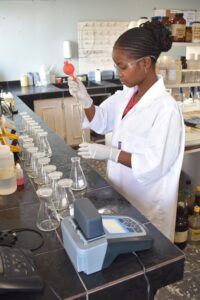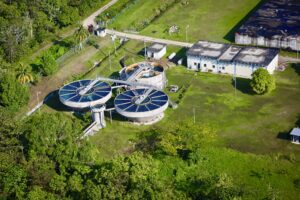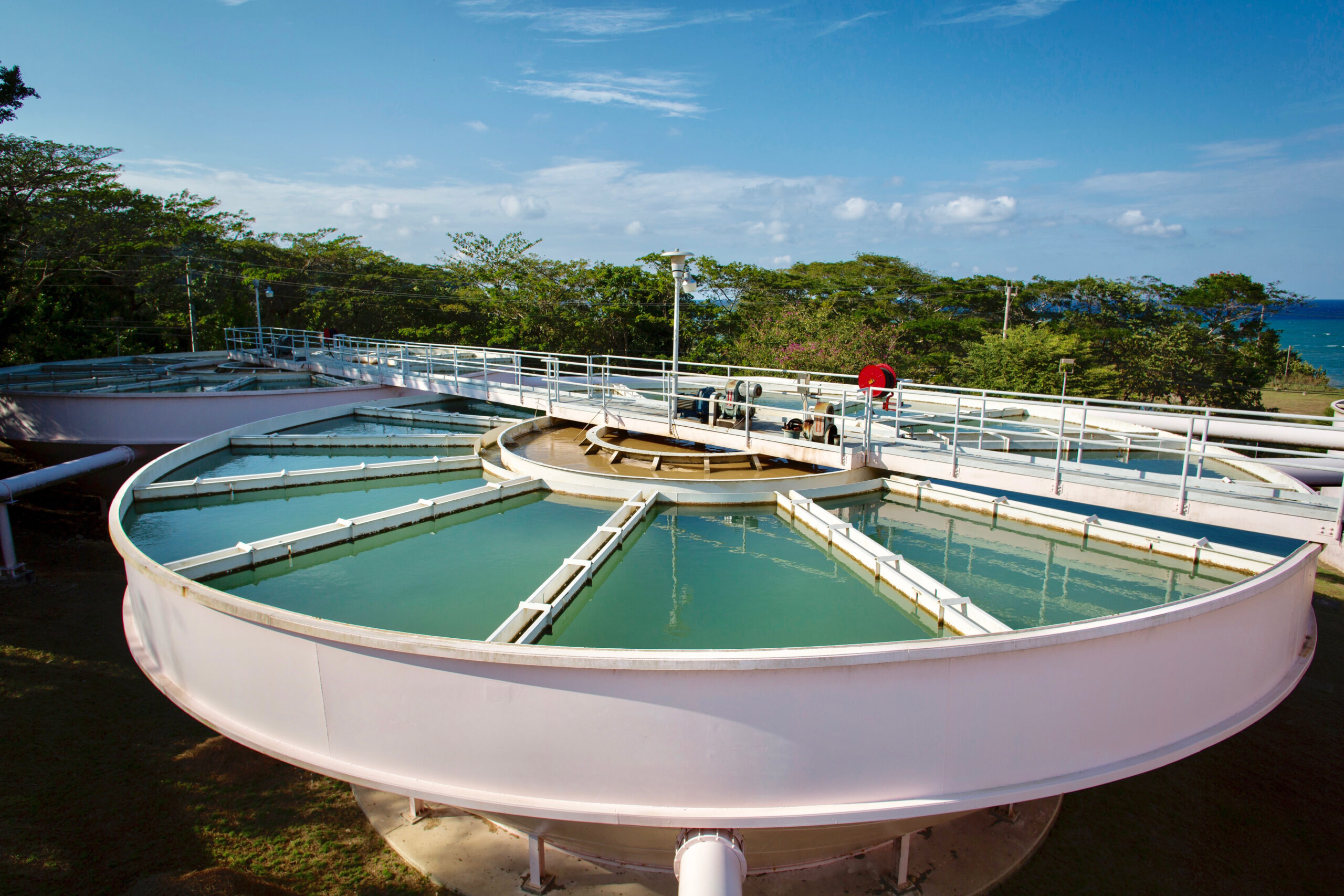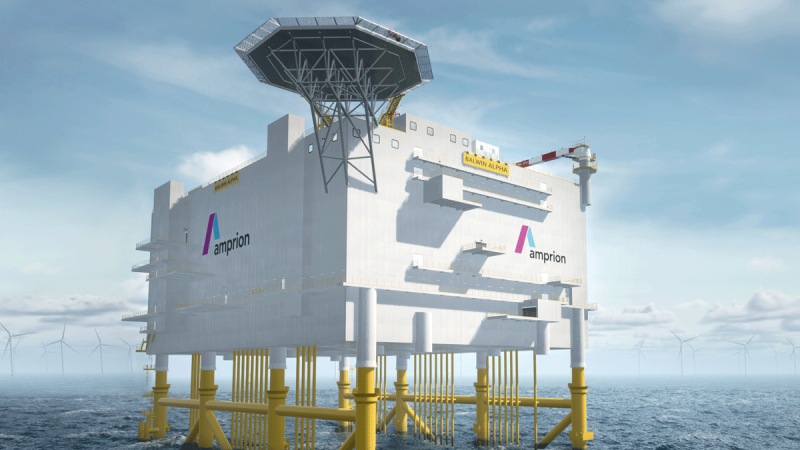The National Water Commission (NWC) is the premier water service provider to Jamaica, charged with meeting the water supply and wastewater service needs that impact every aspect of the economy and daily life on the island.
Over 90% of Jamaica’s total potable water supply is produced by the NWC, directly serving more than 73% of the population through its network of more than 150 underground wells and 250 river and spring sources. It also provides 25% of the population’s wastewater services.
“NWC is the primary water services utility serving approximately 2.4 million people,” explains Mark Barnett, President of the National Water Commission. “We have nationwide coverage of the entire island, 2,300 employees, and a customer base of 580,000 water connections. Our current annual expenditure is just about 34 billion Jamaican dollars, and our annual revenue as of last year was 35 billion dollars.”
NWC has made a name for itself by working tirelessly to improve the reliability of its supply, but more than that, the quality of its water is an attraction all on its own – literally.
“We pride ourselves on the quality of the water we produce and distribute,” Barnett tells us. “Within the Caribbean region, the Caribbean Water and Wastewater Association (CWWA) would host  its annual conference and exhibition, where Caribbean islands water utilities compete against each other in a water-tasting competition. The NWC on three occasions won the competition and voted the best-tasting water. That is a benchmark for us. It is not uncommon for cruise ships to stop in Jamaica to fill up while on their sojourn around the region. Chances are you may be drinking water from Jamaica while on a Caribbean cruise.”
its annual conference and exhibition, where Caribbean islands water utilities compete against each other in a water-tasting competition. The NWC on three occasions won the competition and voted the best-tasting water. That is a benchmark for us. It is not uncommon for cruise ships to stop in Jamaica to fill up while on their sojourn around the region. Chances are you may be drinking water from Jamaica while on a Caribbean cruise.”
That water quality is critical to NWC as this is the single most important thing that builds customer confidence. As a monopoly, ensuring its customers are satisfied is a top priority.
“As the dominant service provider, ensuring all-round customer satisfaction is key. We have been more engaging with our customers, adopting a marketing approach not only in the product but the work we are doing to improve lives and ensuring a sustainable water supply to the various activities so that people appreciate this very vital utility,” Barnett says. “We are a highly regulated utility, tariff determination and customer service delivery is the Office and Utilities Regulation (OUR); wastewater effluent compliance and disposal is the National Environment and Planning Agency, while potable water quality is the Ministry of Health and Wellness.”
Supporting Water
To continue to meet the needs of its customers, NWC needs to expand its network and continue to build on the reliability of its services. The goal is for NWC’s customers to receive 24/7, all-year-round water service and improved wastewater operations. To this end, water supply and sewerage expansions are continuously being planned and implemented to increase access for more of the population while supporting planned developments across the country.
But at the same time, the utility company is facing the same challenges as any other business at a time of skyrocketing costs.
“Our energy bills are our biggest challenge,” Barnett tells us. “We are spending over 10 billion Jamaican dollars on energy. It is one of our largest expenditures, based on the fact that most of Jamaica’s energy is produced from imported fuels. We import oil and natural gas to produce electricity.”
It is a challenge the company is seeking to address in a number of ways.
“We are reviewing how our systems function based on Jamaica’s geography,” Barnett explains. “We are a very mountainous country, with a mountain range east to west in the centre of the island. Therefore, our current systems review as well as new projects will seek to increase the use of storage reservoirs, thus reducing pumping, allowing us to save energy. Additionally, we are slowly transitioning to Photo voltaic (PV) at some of our facilities, thus curtailing costs. As a policy, only premium efficient are specified to be installed in our system. Reconfiguring our distribution network is also part of the energy reduction thrust.”
At the same time as looking towards new solutions, Barnett is also keeping an eye on the existing infrastructure that upholds NWC’s service.
“Our infrastructure is aged. We have old pipelines in place. That is a liability for the business,” he points out candidly. “With that aged infrastructure we end up with high volumes of non-revenue water.”
This is a potential hazard NWC is working quickly to rectify.
“Outside of establishing programs for maintaining the network, we rely on our internal staff complement for maintenance activities,” Barnett says. “We pride ourselves on having a knowledgeable staff complement, but we are also engaging with external consultants where necessary.”
This combination of internal capacity and external support has seen the company signing a Non-Revenue Water (NRW) co-management agreement with company MIYA Water in 2015 for five years, which set out to reduce NRW in the capital Kingston. On completion another arrangement was established for another six years, expiring 2026 in the adjoining predominantly residential community of Portmore. The NWC is also advancing an island-wide performance base NRW project. This is expected to be a game changer for the NWC in improving operational efficiencies.
A High-Performance Team
But Barnett is rightly proud of how NWC nurtures that internal capacity within NWC.
“Employees who join NWC know that we are providing a service to people. There is an ingrained loyalty that has developed among our staff,” Barnett says. “Our staff development policy is very deliberate, encouraging staff to pursue higher education. NWC offers scholarships, grants and sponsorship for employees looking to advance their academic qualifications.”
NWC also offers leadership training and high-performance training, allowing its staff to continuously develop. To emphasize his point Barnett says, there is a long-standing arrangement with the Japan International Cooperation Agency (JICA). “It’s a very well-established arrangement that allows for staff to improve their technical capacity and build knowledge in the area they wish to pursue.”
“Since Covid, our training programs pivoted, where most were offered virtually, rather than the usual in-person delivery.
It is a journey Barnett is intimately familiar with himself, having joined the company as a first-degree Chemical and process engineer, fresh out of the University of the West Indies, St. Augustine campus.
“Just over two years after I had joined I had the opportunity to go to Japan on a three months, training program in “stormwater drainage and sewage system” Barnett recalls. “A year-and-a-half later I went to the UK for a master’s in water and waste engineering at Loughborough University, and all of that was paid for by the NWC. That is how you develop capacity and retain talent. I, myself, am an example of what can happen when a company identifies talent and invests in that talent.”
“What can happen” is an area Barnett is clearly excited about. He becomes animated when he begins talking about NWC’s plans for the future.
“We’ve got a lot planned for the future!” he says. “Renewables are one of the major activities we are pursuing. We are advancing a major capital investment program for improving and renewing our water distribution network and making ourselves more energy efficient. We are looking at transitioning into electronic vehicles for our fleet, for example. The pilot trial will commence sometime this year.”
NWC is also installing Diehl Hydrus brand digital meters that will allow customers to better monitor their own water usage, as well as enable NWC to remotely read those meters and deliver even better service to its customers.
“Our strategy is universal metering,” Barnett says. “These new meters will automatically report an anomaly & communicate with our customers.” The key is to increase the technology penetration in the utility.







